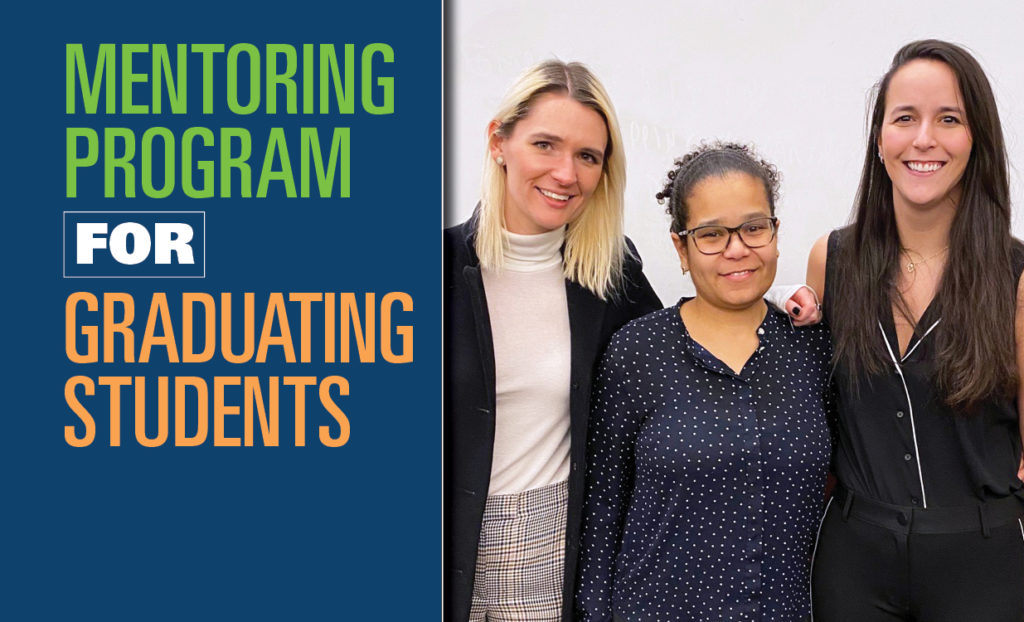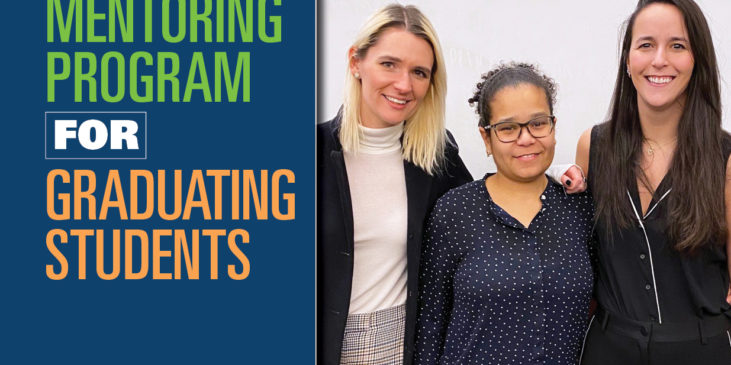
Ask Gabrielle Esposito ’19 and Alexandra Simels ’19 about their final year of law school, and the memories come flooding back.
“Everyone would ask me if I was excited about graduating, and all I could think about was how I had to study for the bar—along with a million other responsibilities,” Esposito said.
Simels recalled the pressure of having “zero downtime.”
Both graduates went on to pass the bar exam and launch exciting legal careers. (Esposito practices matrimonial and family law at McLaughlin & Stern, LLP, and Simels handles a mix of commercial litigation and criminal defense work at the Davidoff Law Firm.)
Free from the challenges of their 3L years, Esposito and Simels wanted to give back to NYLS, while supporting a new wave of graduating students.
“We understand what it’s like to be the nervous student,” Esposito said. “People don’t always know how to ask for the help they need.”
Earlier this month, the duo teamed up with Cynara McQuillan ’03, Assistant Dean for Bar Success, to launch a mentoring program that pairs last year’s graduates with members of the Class of 2020—helping the latter group navigate academics, job search duties, and bar prep and admission.
Dean McQuillan had already established a bar prep mentoring program and welcomed the additional support.
“It was the perfect meeting of minds,” she said. “Mentors can provide valuable guidance on setting goals and expectations, managing time, balancing stress, and effectively using the resources that NYLS provides, such as our bar preparation workshops and the AdaptiBar software.”
The 2020 spring semester is a pilot phase for NYLS’s Mentoring Program for Graduate Students. Esposito and Simels have already connected mentors to mentees, pairing them by division (Day or Evening) and areas of professional interest.
Dean McQuillan, Esposito, and Simels also created a robust mentoring guide that outlines key topics of discussion (from study strategies to bar prep best practices), frequency of communication (mentors should check in with mentees every one to two weeks), and troubleshooting guidance (mentors should report any concerns right away so that NYLS staff can step in).
Each mentor has a pool of six to eight mentees, enabling coverage for the entire graduating J.D. class. The onus is on mentors to reach out first; mentees may participate to whatever degree they find helpful.
On March 3, NYLS will host a networking reception for mentors and mentees. If pairs haven’t already met in person, the event provides an opportunity to connect.
The program’s leaders hope to expand it from one semester to the entire final year of law school—and ultimately to all class years. They also plan to cycle in new groups of recent graduates as mentors, keeping former mentees connected to the program and providing a way for them to give back early in their legal careers, just as Esposito and Simels have.
“Giving our time is a great way for new alumni to make our community even better and to pay it forward,” Simels said.

